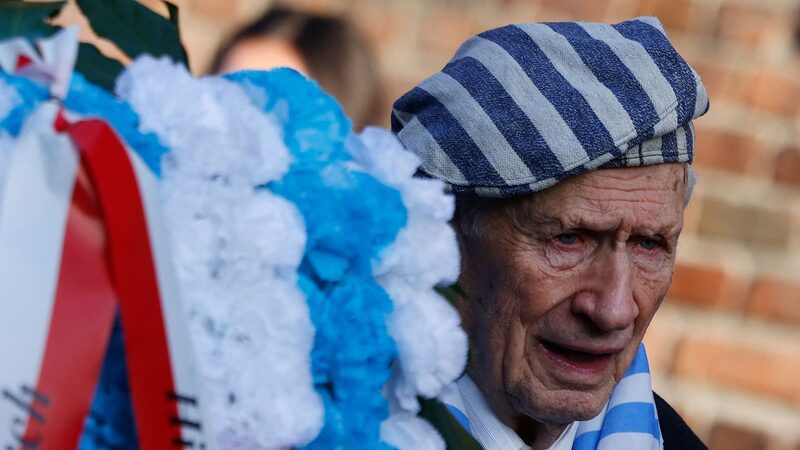The world commemorates the 80th anniversary of Auschwitz's liberation, honoring the memories of those who perished in the infamous Nazi death camp. This significant milestone is marked by ceremonies attended by some of the few remaining survivors and prominent European leaders.
Auschwitz-Birkenau, the largest extermination camp established by Nazi Germany, stands as a stark symbol of genocide, where 6 million European Jews and over 100,000 non-Jews lost their lives between 1940 and 1945. The United Nations has designated the liberation day as Holocaust Remembrance Day, emphasizing the importance of remembering these atrocities.
Approximately 50 survivors and leaders from various European nations, including French President Emmanuel Macron, German Chancellor Olaf Scholz, and Polish President Andrzej Duda, gathered at Auschwitz II-Birkenau for the commemoration. Pawel Sawicki, spokesperson for the Auschwitz-Birkenau Museum and Memorial, highlighted the unique nature of this milestone, stating, \"This is the last milestone anniversary where we can have a group of survivors visibly present at the site. In the future, we must rely on their testimonies to shape the memory of Auschwitz.\"
Polish President Andrzej Duda expressed the nation's role as guardians of memory, saying, \"We Poles, on whose land the Germans built this concentration camp, are today the guardians of memory.\" French President Macron took to social media to reinforce the message, writing, \"Let us fight tirelessly against antisemitism and hatred, in the name of all those who perished. Let us be the memory of their memory.\"
Survivors worldwide shared their fears about the resurgence of hatred and extremism, stressing the necessity of preserving their stories as living witnesses become fewer. The rise of far-right parties in Europe has intensified debates around historical memory, with recent events highlighting the urgency of these discussions.
Elon Musk's recent endorsement of Germany's AfD party, known for downplaying Holocaust atrocities, sparked outrage among European leaders. Donald Tusk, Prime Minister of Poland, condemned Musk's remarks, linking them to the ominous trends leading up to Auschwitz's liberation anniversary.
The increasing incidents of extremism, including the 2021 attack on the U.S. Capitol and rising Islamophobia since the Israel-Hamas conflict escalated in October 2023, underscore the global challenges in combating hate and preserving historical truths.
Holocaust survivor Eva Szepesi, at 92, warned against letting history repeat itself, emphasizing the terrifying nature of current extremism and the urgent need for proactive measures. In response, UN agencies have called for global action, with the UN Security Council adopting Resolution 2686 in June 2023 to condemn hate speech, racism, and extremist acts.
As the global community reflects on the horrors of Auschwitz, the commitment to remembrance and education remains paramount in the fight against hatred and injustice.
Reference(s):
cgtn.com



